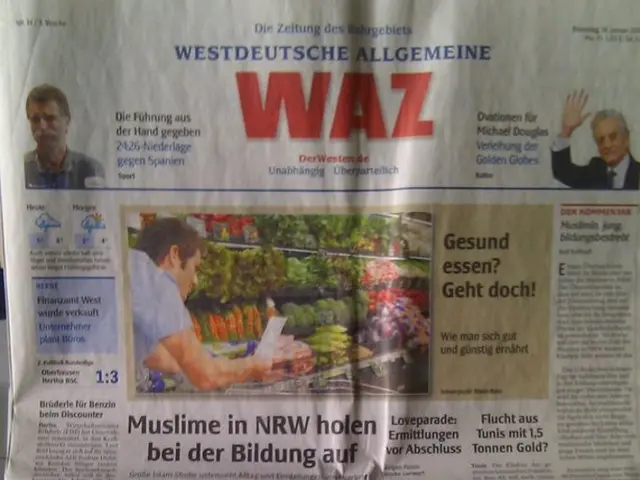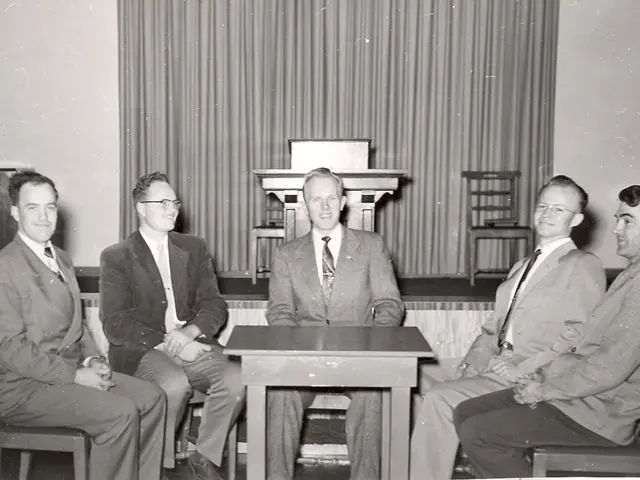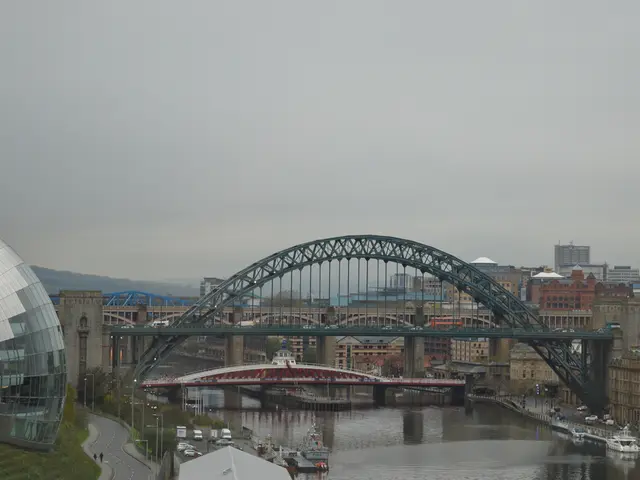Title: Corruption Allegations Tarnish Leaders in Argentina: Milei, Kirchner, and Macri
"Watch out, he shouldn't step foot on his balcony," warned Senator José Mayans (Peronist representative for Formosa) during a heated debate about Senator Edgardo Kueider's ongoing corruption case [1]. The embattled politician is known for having close ties with ex-president Cristina Fernández de Kirchner [1]. Many speculate that Kueider's expulsion from the Senate would grant the Unión por la Patria caucus an additional lawmaker, bringing their total number of votes to 34, dangerously close to establishing a quorum [1].
The controversy surrounding Kueider's conduct began when he was caught crossing the Paraguayan border with $211,102 in cash, an inconsiderable detail he failed to declare [1]. He was traveling with his assistant, Iara Guinsel Costa, who claimed the funds belonged to her employer, Golsur SA – a mysterious construction firm that apparently permitted her to use the funds for purchasing electronic equipment [1]. Kueider insisted that he had no connection to the undisclosed funds, but evidence to the contrary surfaced upon discovering his Senate ID card in the suspect backpack [1].
Defiant in the face of mounting criticism, Kueider allied himself with the libertarians and PRO party, alleging that they had bribed legislators to pass the 'Ley de Bases' mega-package of structural reforms [1]. It was during this time that Kueider rode the coattails of the de Kirchner ticket into Senate, winning a seat in Entres Ríos alongside María Fernández de Kirchner [1].
After a highly publicized scandal, Kueider was ultimately expelled from the Senate by a special session, culminating in a 60-vote campaign against him [1]. Dismissing the charge that he was denied the right to defend himself, Kueider was left to fume in self-imposed exile in Paraguay while awaiting potential extradition back to Argentina [1].
Parallel Scandals
As Kueider's expulsion swept through the headlines, critics across the political spectrum were quick to capitalize on the sensation [1]. National Deputy Cristian Ritondo, along with his wife Romina Aldana Digo, were drawn into their own mire over accusations of omitting Miami condominiums worth $2.6 million from their sworn affidavit [1]. The property's ownership was masked by a series of shell companies which traced back to Ritondo's wife [1]. As investigations continue, the shroud of secrecy surrounding Ritondo's untapped assets remains.
In a separate case, federal prosecutor Ramiro González threw a lavish birthday bash for himself, complete with a star performance by Cristian Castro [1]. A video recording of the event, depicting the extravagance and high-caliber attendees, quickly found its way into the public eye, stirring controversy [1]. Questions regarding the expense of the party as well as alleged connections to controversial figures such as Bingo businessman Daniel Angelici continued to plague González, who was implicated in rumors of corrupt practices.
Faced with these revelations, critics maintained that corruption and its associated improprieties had permeated every inch of Argentine political spheres [1]. As the judicial system struggled with allegations of political and commercial manipulation, many Argentinians bemoaned the glaring impunity afforded to public servants, a trend that spanned administrative eras [1].
Both the Kueider and Ritondo scandals highlighted the toxic influence of unreported assets and corruption upon the power structure of the Argentine political landscape, while exposing the opacity surrounding the use of private fortune by high-ranking politicians.
After Kueider's expulsion, discussions about the impact on Senate markets and voting quorums intensified.[2] Furthermore, the scandal sparked concerns about the role of undisclosed money in Argentine politics, leading to calls for tighter financial regulations in political markets. [3]
Meanwhile, Ritondo's alleged misreporting of Miami condominiums fueled debates about financial accountability and transparency among national deputies, pushing for stricter disclosure laws in political markets. [4] The Ritondo scandal, like Kueider's, underscored the need for enhanced oversight to combat the damaging effects of unreported wealth and corruption on Argentine political institutions. [5]
[2] as the embattled politician's expulsion left his party with one less vote, threatening the Senate's quorum[3] raising questions about how undisclosed funds might influence political decisions[4] with the initial revelation stirring concerns over integrity and transparency among politicians[5] emphasizing the danger of financial opacity in shaping political decision-making processes





